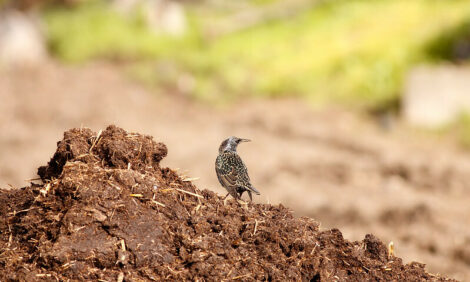



South African Poultry Producers Allege US Meat Poses Health Risk
SOUTH AFRICA - The South African Poultry Association and Pork Producers Organisation are taking the South African Government to court due to concessions made for meat imported from the United States under the African Growth and Opportunity Act. Glenneis Kriel reports.Trade negotiations between the United States and South Africa were shroud with controversy last year, after the United States threatened to withdraw African Growth and Opportunity Act (AGOA) benefits if South Africa did not agree to certain trade concessions.
These concessions included the removal of anti-dumping duties on up to 65,000 tons of bone-in chicken portions as well as as more lenient health and safety regulations for imported meat products in general.
While the South African Government has agreed to the new concessions at the start of this year, the South African meat industry is still concerned over the potential threat that the allowance of some of these concessions pose to human or animal health. The South African Poultry Association (SAPA) and South African Pork Producers Organisation (SAPPO) have therefore recently appealed against some of these concessions in court.
SAPPO called for the reviewing and setting aside of the “Side Letter on Pork Shoulder Importation from the United States of America to South Africa,” to prevent porcine reproductive and respiratory syndrome (PRRS) from entering the country.
Simon Streicher, CEO of SAPPO, said that South Africa was one of only a few countries in the world where PRRS has been eliminated. “To prevent the disease from re-entering the country, pork imports have to confirm to the Veterinary Procedural Notice (VPN42). The lymph nodes has to be removed and the meat has to be cut in a specific way before it may enter the country.”
“The United States claim that they have their own way of reducing this risk, but we haven’t been convinced. We have already rejected about 500 kg of pork shoulders since the concession has been approved, because of this risk,” Mr Streicher said.
SAPA is appealing against concessions concerning the standard Salmonella protocol for the testing of imported products, because of the risk of people getting sick if contaminated poultry entered the country. Kevin Lovell, CEO of SAPA said their and SAPPO’s appeals should not have a negative impact on the AGOA agreement, as it is not an attack on agreed quotas: “All we want is for the United States to follow the same protocols as any other country.”
Gerhard Schutte, CEO of the South African Red Meat Producers Organisation, said that the red meat industry was also unhappy with some of the concessions, but that they were not appealing against these as it did not affect the industry as badly as it was affecting the poultry and pork industry.
“The exchange rate has helped to keep red meat imports under control. Imports might however become a bigger problem in future, as the industry is currently gearing up to expand its export footprint,” Mr Schutte said.
He added that their main concern with meat imported from America, related to the rules of origin: “At the moment we find that meat from Mexico is entering South Africa via America, even though it has not been kept in America for three months as required by the OIE.”








